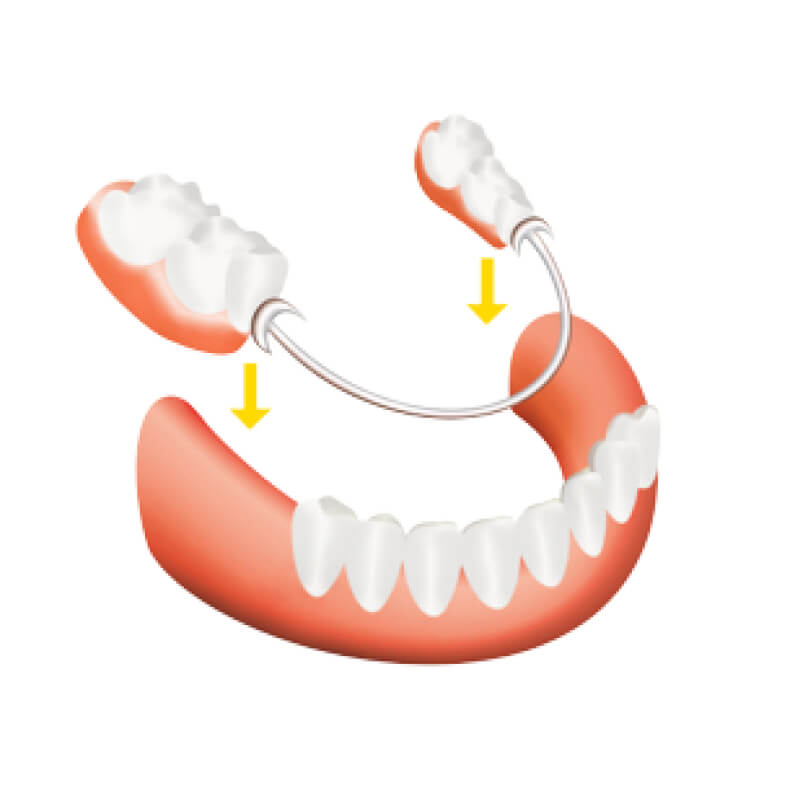

Dentures are a prosthetic replacement of missing teeth. Dentures can be removed and used to replace missing teeth in our mouth. Dentures help in preserving the remaining firm teeth in place and maintain the face by preventing from sagging. Although doctors play a major role in designing and making optimum prosthetic restoration, the selection of denture material is equally important. A lot of available options are out there when it comes to denture selection. It can be very tiring at times to choose one, so to you, this can act as a piece of information that nowadays more and more people are choosing the flexible kind. Let's get to know about the reasons to go for flexible Dentures. What are the other types of dentures? The types of dentures you can get in the best dental hospital in Bangalore depend on the type of material used in the fabrication of dentures. The efficiency of dentures depends very much on the material used to fabricate them. On one side when heavy metal dentures are preferably used for mandible retention on the other side for comfort and ease there is a need for dentures which are light in weight. Metal cast /metal frame/ metal base Acrylic denture base prosthesis. Why is there a need for flexible dentures? Nylon-derived denture base material is an innovation that has paved a way for new types of dentures. Nylon is a synthetic material and unique in its own way. They are excellent alternatives to conventionally used methyl methacrylate dentures. Adapts to the constant movement and flexibility in partially edentulous patients. How did we come to know the need for flexible Dentures? You might come across several challenges and report them to the dentist regarding that based on patients' feedback they come up with different innovations and improvements in the existing denture. What are Flexible Dentures made up of? The use of advanced materials gives these Dentures added benefits to the conventional. They are made up of thermoplastic material. The most commonly used is nylon. Types of flexible denture? Velplast and flexite are the two common denture materials used currently. Special flasks are used for flasking, dewaxing and injection of molten velplast and flexite. What are the benefits of Flexible Dentures? They are thin and bendable. Made up of soft material, comfortable. They rarely cause any allergic reaction. They are bisphenol A(BPA) free. They don't absorb any stains and smell. They look very much pleasing aesthetically. They give a natural look. There is no need of using adhesive in these kinds of Dentures as they already are strongly adherent to your gums. Made in less time comparatively. Requires less number of appointments. What are the drawbacks of Flexible Dentures? In spite of having so many advantages over the conventional denture, there are certain factors to be considered as a downside of flexible Dentures. It costs more than the conventional ones due to the complicated fabrication process. It needs skilled professionals to fix and adjust these dentures. It is more prone to bacterial build-up. How to Clean Flexible Dentures? The typical cleaning routine for flexible dentures done by the best dental surgeon in Bangalore includes soaking them in a denture cleanser solution and brushing them to get rid of any dirt or buildup. Once this has been done, the denture should be rinsed to clear off any broken-up dirt or residue from the cleaning solution. Your dentist or denture technician should always advise you on how to take care of your dentures. Conclusion The rehabilitation of orofacial structures demands the restoration of aesthetics and function irrespective of the individual's dietary/parafunctional habits and structure left. The flexible dentures were found to fare significantly better as compared to the conventional methyl methacrylate dentures on the parameters taken into consideration. FAQs Q.1 Is cleaning and maintaining flexible dentures different from conventional dentures? Ans. It is the same for both types of dentures. It is relatively easy to maintain flexible dentures because it has long durability. Q.2 Is flexible denture superior to the conventional denture aesthetically? Ans. Yes, apart from being comfortable, flexible dentures are more aesthetic too. Q.3 Does flexible denture cause mucosal irritation? Ans. When compared to the conventional denture it is negligible. Q.4 Which type of denture takes less time to fabricate? Ans. Flexible denture takes the least amount of time to fabricate. Q.5 Does the fabrication of flexible dentures require additional machinery? Ans. Yes, the fabrication involves a special flask and injecting devices.
Dentures are foreign material to the oral cavity and their purpose is to be part of it and reestablish the functional and esthetics aspect. The material chosen for denture fabrication needs to fulfil the primary requirements like retention, stability, durability, and strength. Currently, the types of dentures available are,
A study was conducted to know about the same in which patients reported the problems with their denture like Irritating mucosa, foul smell, difficulty to wear and remove, frequent fractures and crack.